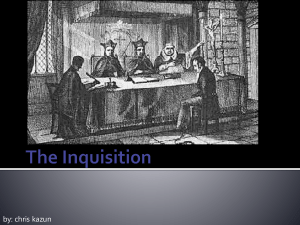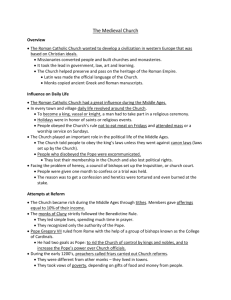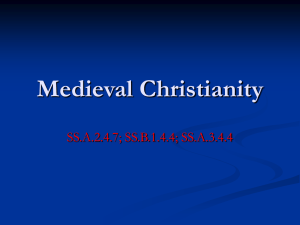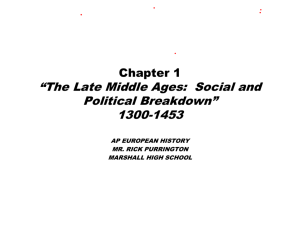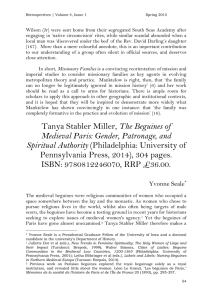Orthodoxy, Heterodoxy and Heresy
advertisement
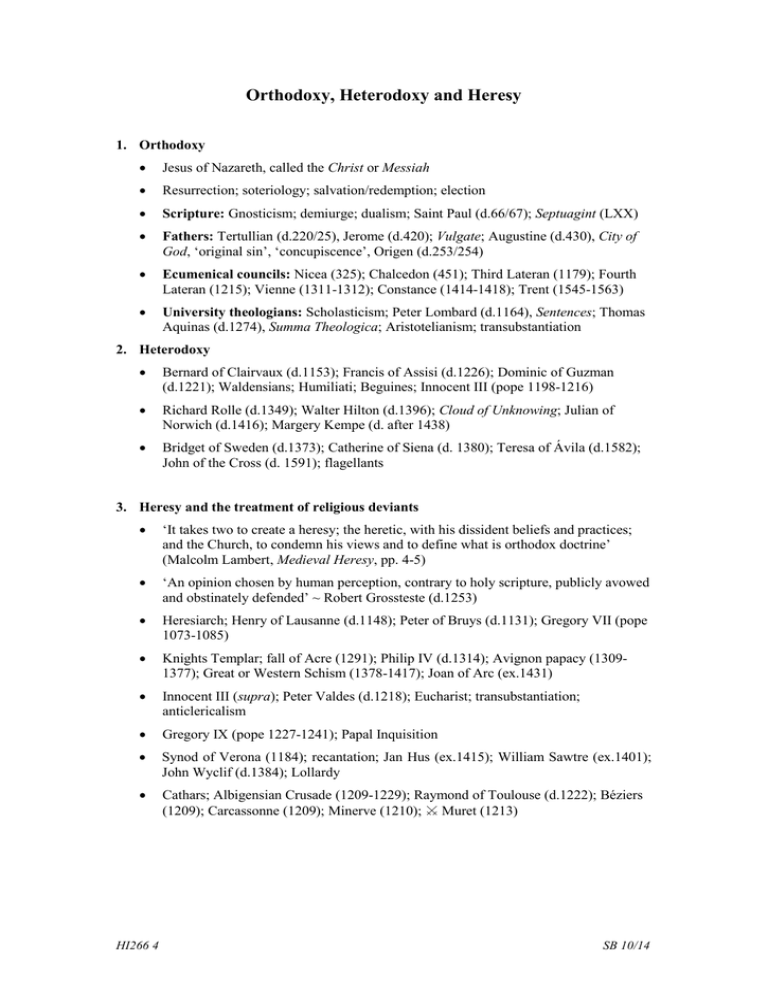
Orthodoxy, Heterodoxy and Heresy 1. Orthodoxy Jesus of Nazareth, called the Christ or Messiah Resurrection; soteriology; salvation/redemption; election Scripture: Gnosticism; demiurge; dualism; Saint Paul (d.66/67); Septuagint (LXX) Fathers: Tertullian (d.220/25), Jerome (d.420); Vulgate; Augustine (d.430), City of God, ‘original sin’, ‘concupiscence’, Origen (d.253/254) Ecumenical councils: Nicea (325); Chalcedon (451); Third Lateran (1179); Fourth Lateran (1215); Vienne (1311-1312); Constance (1414-1418); Trent (1545-1563) University theologians: Scholasticism; Peter Lombard (d.1164), Sentences; Thomas Aquinas (d.1274), Summa Theologica; Aristotelianism; transubstantiation 2. Heterodoxy Bernard of Clairvaux (d.1153); Francis of Assisi (d.1226); Dominic of Guzman (d.1221); Waldensians; Humiliati; Beguines; Innocent III (pope 1198-1216) Richard Rolle (d.1349); Walter Hilton (d.1396); Cloud of Unknowing; Julian of Norwich (d.1416); Margery Kempe (d. after 1438) Bridget of Sweden (d.1373); Catherine of Siena (d. 1380); Teresa of Ávila (d.1582); John of the Cross (d. 1591); flagellants 3. Heresy and the treatment of religious deviants ‘It takes two to create a heresy; the heretic, with his dissident beliefs and practices; and the Church, to condemn his views and to define what is orthodox doctrine’ (Malcolm Lambert, Medieval Heresy, pp. 4-5) ‘An opinion chosen by human perception, contrary to holy scripture, publicly avowed and obstinately defended’ ~ Robert Grossteste (d.1253) Heresiarch; Henry of Lausanne (d.1148); Peter of Bruys (d.1131); Gregory VII (pope 1073-1085) Knights Templar; fall of Acre (1291); Philip IV (d.1314); Avignon papacy (13091377); Great or Western Schism (1378-1417); Joan of Arc (ex.1431) Innocent III (supra); Peter Valdes (d.1218); Eucharist; transubstantiation; anticlericalism Gregory IX (pope 1227-1241); Papal Inquisition Synod of Verona (1184); recantation; Jan Hus (ex.1415); William Sawtre (ex.1401); John Wyclif (d.1384); Lollardy Cathars; Albigensian Crusade (1209-1229); Raymond of Toulouse (d.1222); Béziers (1209); Carcassonne (1209); Minerve (1210); Muret (1213) HI266 4 SB 10/14
